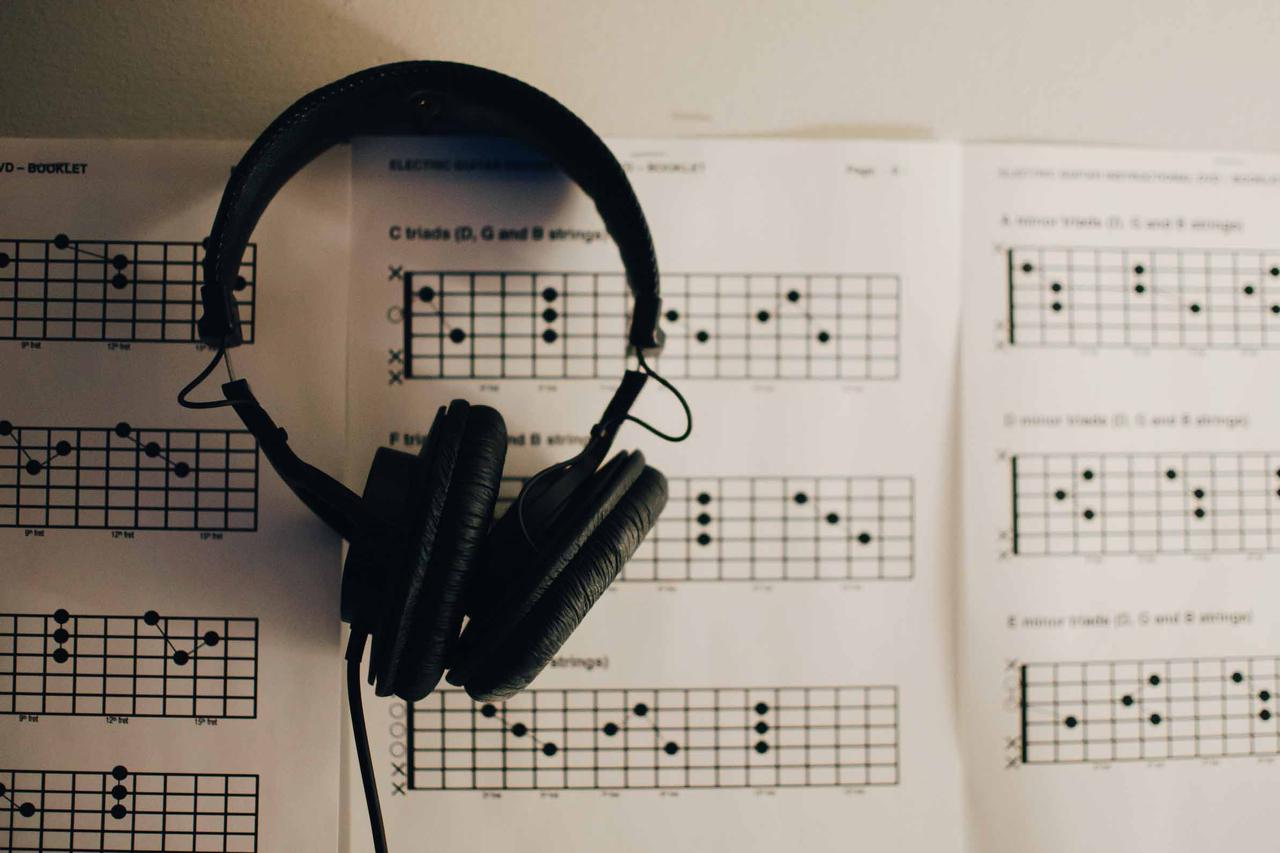Teaching Music In Prisons
Arts & Enrichment

Many of our learners have had difficult experiences of both interpersonal relationships and formal classroom education. Our creative arts, enrichment and Personal and Social Development (PSD) programmes and courses help our learners to improve their self-knowledge, develop self-confidence, behaviour and attitudes, improve interpersonal skills and relationships, and encourage learning.
Reengaging learners in the criminal justice system may seem like a massive task but is made possible thanks to our support team of tutors and partners. In reaching these learners, creativity (both in approach and subject) is our greatest tool.
This blogpost will be discussing the importance of music education in prisons, and how music lessons in prison support the mental health and rehabilitation of offenders.
Why is it important to teach music in prisons?
Music is engaging for everyone. All of us have a favourite song, or genre, and all of us like to think we can tap along to a beat. By connecting with learners on something that they already know about, it is easier to draw them into an education environment.
Playing music in classrooms disarms the learners and encourages participation in an activity that develops communication and trust. Our music courses teach learners how to work as a team, grow their self-esteem and ultimately supports prison rehabilitation.
Due to the restriction in place within secure environments, it is important to prioritise interactive experiences that utilise personal and social skills that may typically go unused in a prison environment. Learners come out the other end of these classes with a better respect for their tutors and fellow learners.
By integrating these classes with our English, maths, and vocational skills, we can use music to tackle the greater education drop-off that prisoners regularly experience, and in turn reduce reoffending rates.
Our partners and recent music programmes
Working with a diverse group of partners helps us to deliver exciting music programs that can be tailored to cater the varying needs of our learners.
We have just finished working on an exciting programme with the Irene Taylor Trust to deliver music education in our HMYOI Wetherby and HMP Thorn Cross locations. The Trust rolled out their “Music in Prisons” programme which sees five days of intensive music instruction to get the learners to form bands and create an album, which they all receive a copy of. We are eager to expand this pilot to some of our other establishments soon.
Looking forward and always keeping our offering fresh, we have been working along with Sing Inside, a choir-based charity, to get our learners involved in the management and running of their education offering. The pilot programme, which has been run at HMP Liverpool, looked to recruit learners as ambassadors that can be trained in the administration and mentorship elements of their projects. In doing so, not only are the learners challenged mentally and creatively, but they are also provided great working experience that can feature on their CVs upon release, thus supporting prisoners in finding employment.. While this venture is still in the early stages of development, we are eager to see it piloted at some of our other establishments in the coming months.
Learners are coached throughout the process by the team from Sing Inside, who aim to build the confidence and responsibility of the project ambassadors over the six-month trial period. They will also be participating in the music-based education that Sing Inside already offers.
Variety is important in challenging our learners creatively, so having a diverse group of support organisations lets us cater our education provisions to the needs of the learners depending on their own tastes.
What challenges do you face teaching music in prisons?
When working in a prison, our tutors balance the delivery of lessons with the challenges of making lessons accessible for a variety of learning and musical abilities.
Creative projects are a welcome challenge; requiring participants to step outside of their comfort zones, learn skills and demonstrate dedication, bravery, empathy, and respect for each other’s ideas in order to successfully create, rehearse and perform music.
Our education team's work had to create a level of trust and respect between themselves and the learners. Without this, our music education and training wouldn’t have the impact it needs to.
What benefits do we see from teaching music in prisons?
Music is the ultimate community builder. Every person, learner or tutor, coming into our classrooms has some experience and appreciation for music. Developing musicians is always phenomenal, but what we aim for most is to create relationships and communication through a common ground.
Creative outlets are incredibly important for rehabilitation in prisons, and a more appealing initiation into education for many of our learners who would otherwise avoid our classrooms.
Teaching music in prisons is a surprising and fulfilling field of work that requires dedicated and creative colleagues. We are positioned to help the most vulnerable members of society reintegrate back into society.
Through our music education provisions, our prison education team is finding ways to engage and inspire our learners, while challenging them at the same time.
We need people with a passion for music, who want to share that with our learners. If you want to inspire the next generation of musos, and are wanting a prison education job, read more about our career opportunities in our Job Portal, or read more about the kind of work we do in the music education field.
Find out more about how Novus is supporting education in prisons.


